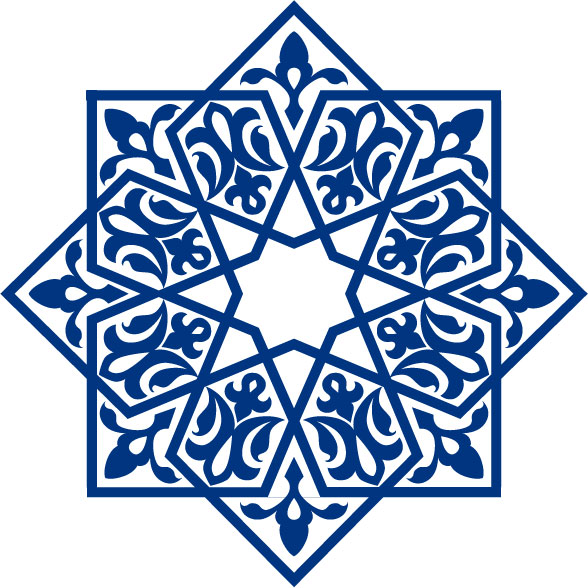I face up to it, this fear that day in, day out curses my family – our security, stability, and happiness – and my own wellbeing. This fear might silence my outspoken opposition to the increasing injustice holding us under siege on all fronts. It might compel me to disregard the moral and social imperative to stand in solidarity with the victims and the triumph of their rights. Or it might drive me to take on these injustices with an unwavering sense of purpose, in the pursuit of full disclosure and to salvage some credibility. Above all, my goal is to release this burden of fear.
Thus, I’m making use of this platform to write about the cruel and ongoing abductions of young Egyptian men and women. I will do this only once, after which I will entrust the matter to oblivion. There, the destinies of the disappeared shall remain unknown: we shall never restore their rights and freedoms and never hold the perpetrators accountable for their frightening encroachments on civil liberties. As to those languishing behind lock and key, some of their names we know; others, only their families and lawyers know. If I were to write not just this once but every now and again about those whose freedoms have been stolen, I would still be entrusting the matter to languish, forgotten in oblivion.
I face up to and resist it, this fear that day in, day out curses my family – our security, stability, and happiness – and my own wellbeing. This fear insists that I turn once again to a life of exile and to seek admission to a safe haven. My wife and I, our daughter Nadia and two sons Louay and Noah: we will gather up as a family and pack up our belongings. It hasn’t been easy living these past few years, neither for us nor for many of our friends. They have either pursued or been forced – by way of macabre threats or the risk of violent retribution – into a state of “temporary absence” and withdrew from public affairs in Egypt. Others decided to remain engaged with current affairs by exercising their freedom of expression while striving, from afar, to call peacefully for an end to injustice. With pen and voice, they articulated their opinions and critical thoughts on the challenges and opportunities to regain the path toward democratic transition and sustainable development in Egypt. They called for the establishment of an integrated system of transitional justice so as to enrich the local debate and advocate for some ways to address its fundamental insufficiencies and to escape the daily state of terror, as I have written about previously.
I take the urgency of this matter as my ally, calling on all that is good in Egypt and assuring my friends and loved ones that injustices inevitably come to an end and their perpetrators will be held accountable. I tell them that we must remain patient and we must remain present in the public sphere. I downplay the difficulties our families face and I remain optimistic in our ability to overcome them. I overstate the dangerous negative repercussions of “leaving Egypt,” such as slipping into escalating verbal and intellectual assaults against the situation, and glibly reducing it to injustice, encroachment on civil liberties, and a new form of authoritarianism. All these things merit condemnation, but falling captive to the camp of “total rejection” of the circumstances we face will do nothing but heighten fear and paranoia in Egypt and speed up the surrender to a life in exile. In fact, these negative repercussions affect writers, intellectuals, and academics in exile. Usually, when the vicious cycle of verbal violence begins, it can lead to three things. Firstly, the heightened intellectual tensions may collapse the distance between the nation and the intellectual living abroad and compensate for a lack of credibility, an inevitable outcome of their “temporary absence.” Secondly, the security and freedom afforded by exile can enable the intellectual to point out all the faults of the local debate, as a responsibility of conscience and as an obligation to the victims of injustice who have no choice but to be silent in the country. Finally, the “total rejection” approach can be used as a strategy to apologize to victims for the intellectual’s own “temporary absence” and for forgoing solidarity with those who remain at home, opting instead to save one’s own skin in exile.
I stand at a stalemate, between fear that insists on the path to exile and between the other psychological pressures that will soon also drag me, frightened, to a state of “temporary absence.” (I hold each individual’s pursuit of safety and happiness to be sacred and fully appreciate the roles that some thinkers in exile – those who care little to follow current affairs and those who take seriously the growing infestation of McCarthyism – have taken.) This stalemate is exhausting my family, my friends, and professional life. It is a stalemate between my refusal to remain silent in the face of injustice and between my involvement in writing about it, perhaps as a process to let it all out and to relieve my conscience. This deadlock, my stalemate, is unending. On the one hand, I can deploy ideas to condemn unequivocally the crimes of torture, of the tyranny of the security state, and of the infringement of individual liberties in the new Egypt. On the other, I can outwit or beguile oppression, taking me under siege with its ambivalence, its ideas void of any real content, the inevitable outcome of which is to lose the capacity to think independently and to express our opinions freely.
Amr Hamzawy joined the Department of Public Policy and Administration at the American University in Cairo in 2011, where he continues to serve today. He is a former member of parliament, former member of the National Salvation Front, and founder of the Freedom Egypt Party.
